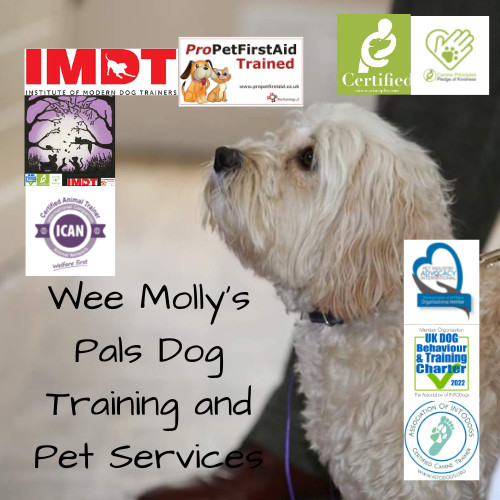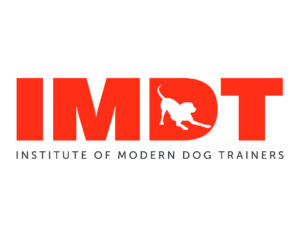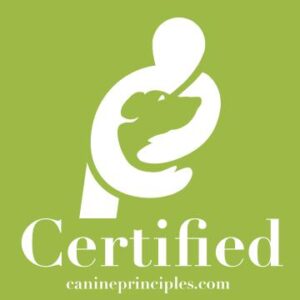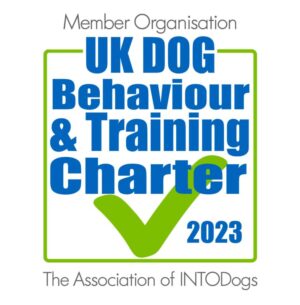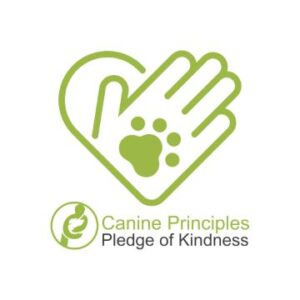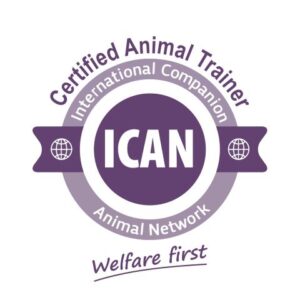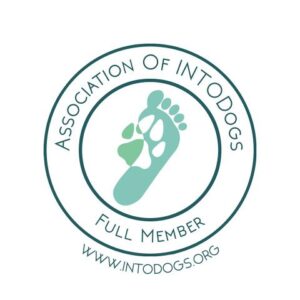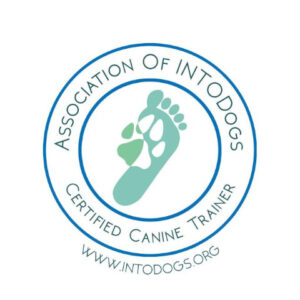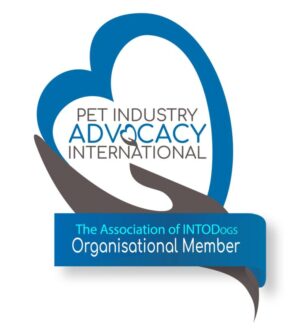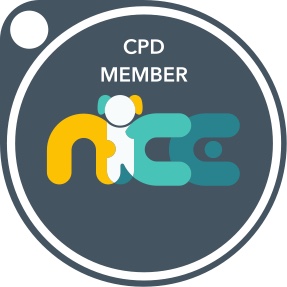Pre-puppy consultations are something that I promote and believe in wholeheartedly . I have good reason for that - being prepared means you are in a MUCH better position to proactively manage normal puppy issues that you encounter along the way before they become 'unwanted' behaviour. To get the most out of them, consultations should be sought WAY BEFORE you put your deposit down - they should happen before you've even decided which breeder or breed of dog! Invest in your potential new arrival from day one, they are part of your family - take the support that's out there, it does pay off! Good trainers offer pre-puppy consultations because we know just how important that preparation is for the long-term benefit and wellbeing of both dog and guardian.
When you are deciding to take on a puppy, there are so many factors to think about. Family dynamics, home environment, activity levels and the amount of time you can give to a new puppy, as well as the long-term commitment - it all needs to be taken into account. Puppies, just like babies, need a stable environment with a regular routine, in which to blossom - is that something you can offer? Can you provide them with appropriate and suitable socialisation? Do you have room for a larger breed? Do you have the energy to cope with a high drive dog? Do you have enough commitment or knowledge to take on a working dog, like a Collie or a Spaniel? Do you have enough time to allow puppy to get used to being alone before you go back to work? If you're considering a brachycephalic (flat-faced) breed like a French Bulldog or a Pug, have you researched their very particular health problems and know what to look for in a healthy pup? Can you afford to insure your dog and if not, can you pay vet bills? If you can't say yes to ALL of these, then some more research is required before you take on that level of responsibility.
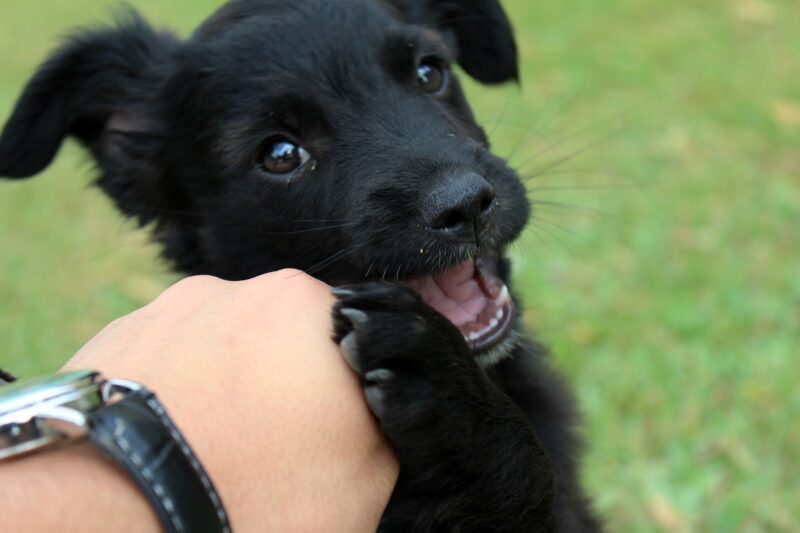
Can you honestly say that you will put the effort in every single day to train and interact with puppy from day one? Training doesn't stop when the puppy grows up - it's a constant and is a vital part of creating a positive relationship between dog and guardian. Creating and managing boundaries takes sleepless nights, eternal patience, hard work and a LOT of commitment. Puppy classes don't magically train puppies - they provide the foundations for you and your family to work on. Training fails when we don't keep that momentum up - the relationship between dog and guardian can ultimately break down and in some cases, become irreparable. Proper preparation with a good, professional trainer, can set you and pup up to avoid these issues, or at least make you aware of them and in a better potision to deal with them as they arise.
Do you have young children in the house or children who visit? If so, you also need to think about the child/puppy relationship - it's not all about the cuteness and the child having a companion as they grow. Puppies are not cuddly toys. Is your child able to understand that puppy needs to be left alone to rest and will they comply with that? Will they be able to make sure puppy feels safe and not crowded? One of the potential pitfalls of having a puppy is not appreciating just how much of a land shark they are - just like babies, they teethe for a LONG time. Just like babies, they need to try and chew on something to ease that pain. They also have an innate need to chew, whether teething or not. If puppy gets too overexcited with young children OR adults who like to roughhouse, the teeth come into play and the puppy gets told off - or even worse, we smack them on the nose, which can cause behavioural issues and a fear of human contact down the line - something we DEFINITELY want to avoid. Puppies and children can be a wonderful match - but boundaries and supervision need to be in place from the start, as well as a basic understanding of canine body language and stress signals, to avoid potential flashpoints. I like to send new guardians an infographic of the canine ladder of aggression - a simple visual to help parents and children work together to try and help puppies live in the 'green zone' as much as possible.
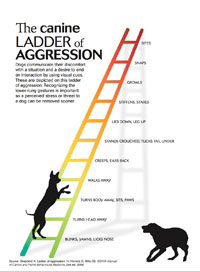
Puppies don't come to us as a blank canvas - environmental and genetic factors have been at play since the moment of conception. Their early experiences, just like humans, shape their lives and understanding of the world. If mum was stressed or nervous, there's a higher chance puppy will be stressed or nervous. If mum is confident and well socialised, puppy is more likely to be confident in new situations - it's a fact of life (and science). If pup's time in the whelping box with mum and littermates was in a loving and calm family home with all the normal household sounds, they are likely to be more confident and resilient than a puppy brought up in a dark shed with no access to natural light, sounds or human touch.
From the moment puppy arrives, new guardians should be setting the boundaries to help the puppy understand the house rules and what we want from him. Set the puppy up to succeed from the very beginning and life will be MUCH easier. For instance - the eternal issue of puppy jumping up, cute at first, then REALLY annoying, and potentially dangerous as puppy grows. If guardians knew from the outset that all those 2-legs-off-the-floor cuddles create the reinforcement history that CAUSES the puppy to jump, they can have a strategy in place to avoid it. Reinforcement isn't just about food rewards - puppies crave comfort and attention and when we give them that, they'll seek the same thing again. When we then reprimand them as they grow up for doing the same thing, it's no wonder it becomes such a flashpoint!
The first night for a puppy is CRUCIAL. Socialisation classes can't give you advice for that - they come far too late. If the first night has been a disaster and puppy has been left to cry in a locked room on his own, the relationship between pup and guardian has already been damaged. Think about that first night from the puppy's point of view - a new family, new sounds and smells. None of the comfort or interaction from mum or littermates. This new world can be a very scary place - with good preparation, we can make that transition much easier for them (and, in turn, ourselves).
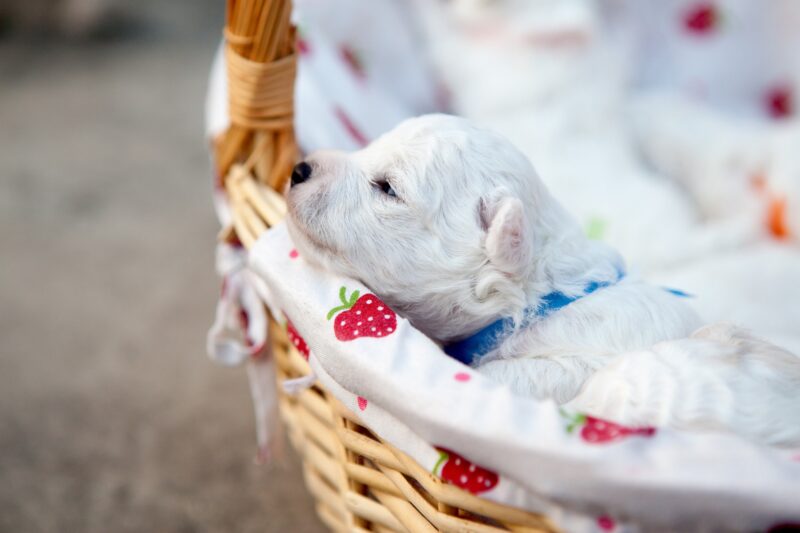
As a trainer, a large percentage of my enquiries are for socialisation classes or puppy classes. But the bit before that is also critical, if not more so. Puppies go through a couple of fear periods in their lives, including one that kicks in at around 8-10 weeks of age. If the transition from mum to new family isn't handled well, that can cause long term effects, including the potential for separation anxiety.
Trainers want you to know that socialisation does NOT begin in socialisation class. The term 'socialisation' at this stage of a puppy's life means 'exposure to'. During their critical 'socialisation period' (up to around 16 weeks) it is crucial that we expose puppies to new situations, sensory experiences, animals, humans and other dogs in a controlled and safe way and at a pace they can cope with. To bring a puppy home at 8 weeks, but then to keep at home until 2 vaccinations are done - sometimes a month later - means a large part of that socialisation opportunity has been missed. Puppy slings and buggies were invented for good reason!
I love a pre-puppy consultation, because it shows me how committed people are to getting things right. Remember, your pup may still be a pup at almost 2 years of age, depending on size and breed. Make sure you start off on the right paw!
My name is June Eaglesham, I am qualified and certified by IMDT, INTODogs, ICAN, Canine Principles and Pet Industry Advocacy International. I’m also a proud member of the UK Dog Behaviour and Training Charter. I am also a student with Animal Centred Education, qualified to Module 2 level, as well as being a student with HeartDog Trainers. I am the founder of Wee Molly's Pals Pet Services, based in the village of Winchburgh, just west of Edinburgh.
